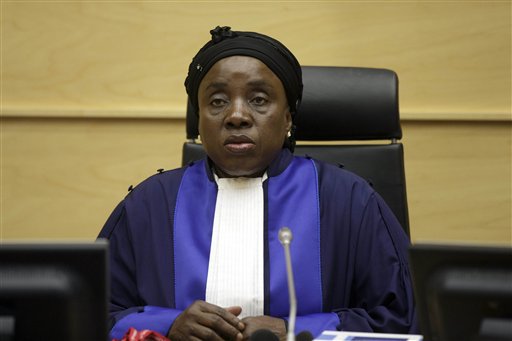Fatoumata Dembélé Diarra, a former judge of the International Criminal Tribunal for the former Yugoslavia (ICTY) and the International Criminal Court (ICC), has pointed out Iran’s Justice Minister Mostafa Pour-Mohammadi as one of the perpetrators of the 1988 massacre of political prisoners in Iran.
Diarra told a conference in Paris that the international community ought to prosecute the perpetrators of the massacre of some 30,000 political prisoners in Iran in the summer of 1988.
The following are excerpts of her speech on 26 November 2016 at the conference called: “Call for Justice: Ending Impunity for Perpetrators of Crimes Against Humanity in Iran and Syria.”
Judge Fatoumata Dembélé Diarra:
“The crimes and atrocities perpetrated in Iran, notably the 1988 massacre, are considered in the preamble to the ICC Statute as crimes that defy imagination and are profoundly offensive to human conscience and pose a threat to global peace and security, thus affecting the entire international community by their gravity.
These crimes, therefore, cannot go unpunished, and their prosecution must be ensured either at the national level or by the international community. Since it is obvious at the Iranian national level nothing will be done to punish these criminals, so the onus is on the international community, as well as states, NGOs and the international organization called the United Nations.
So we are facing a situation where crimes against humanity have been perpetrated and they have to be punished.
Having said that, I will say here that, in the case of proven facts, followed by the confessions of certain well-known actors such as the Minister of Justice, there is a historical duty for justice to be carried out. Geoffrey Robertson quoted a person who said that the unpunished Iranian massacres will be an eternal shame for Iran. I say that it is an eternal shame for the entire international community. So, I say to myself, then, which country, in order to be consistent with the great principles of democracy, justice and respect for humanity as it claims, will undertake to bring this recommendation before the United Nations as soon as possible?
I conclude with the hope of finding an answer to this question by paying tribute to the NGOs and the Women’s Committee of the National Council of Resistance of Iran, which are striving in the search for solutions to this impunity after the massacre of 30,000 innocent Iranian citizens. Thank you.”

